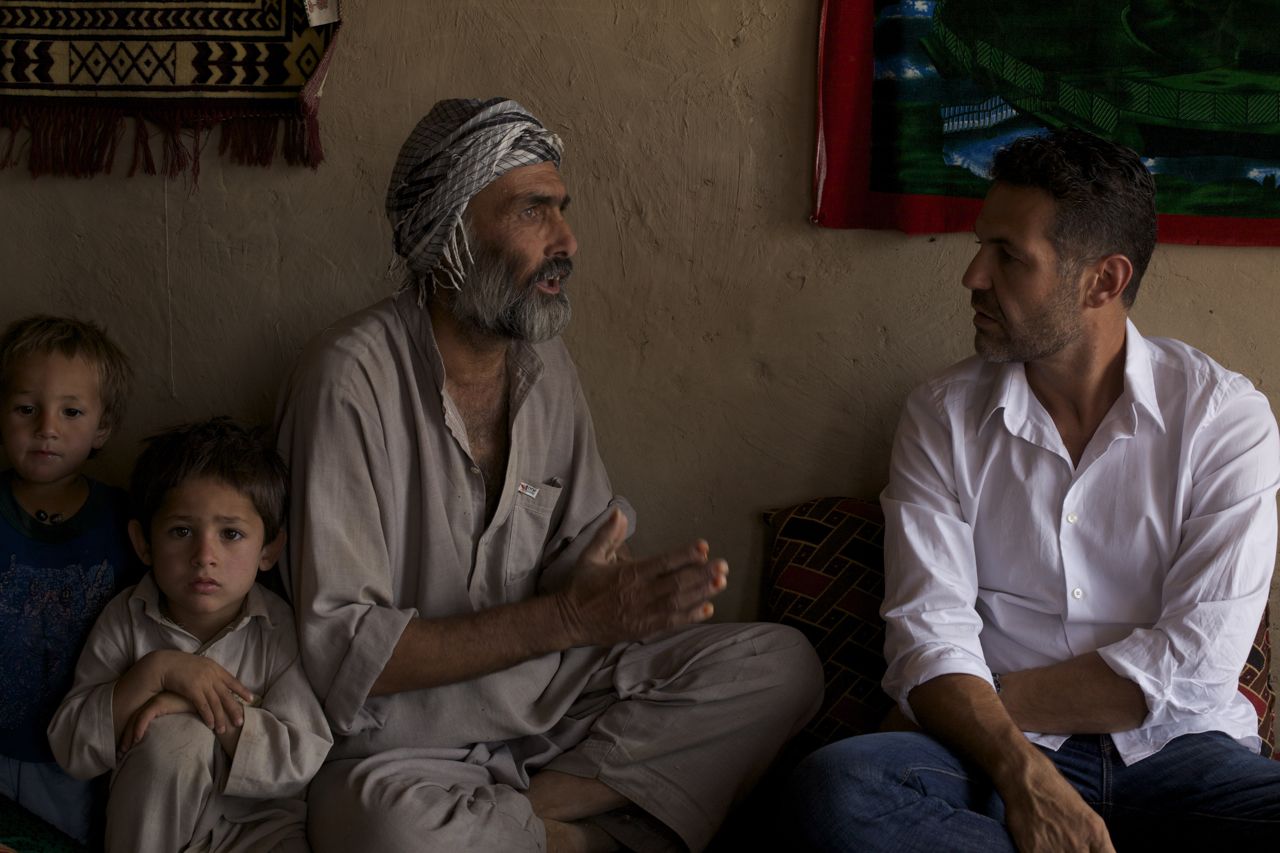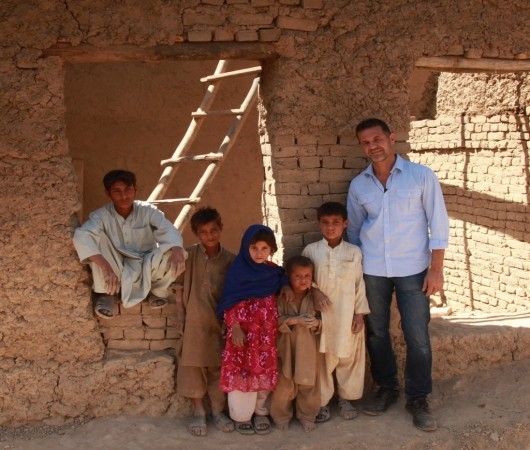Exploring the Literary Legacy of Khaled Hosseini: A Journey of Emotion, Identity, and Redemption
 Khaled Hosseini, a name synonymous with powerful storytelling and emotional resonance, has carved a niche in contemporary literature with his evocative narratives set against the backdrop of Afghanistan. Through his novels, Hosseini weaves intricate tales of human resilience, familial bonds, and the enduring quest for redemption, capturing the essence of Afghan culture while resonating with readers worldwide.
Khaled Hosseini, a name synonymous with powerful storytelling and emotional resonance, has carved a niche in contemporary literature with his evocative narratives set against the backdrop of Afghanistan. Through his novels, Hosseini weaves intricate tales of human resilience, familial bonds, and the enduring quest for redemption, capturing the essence of Afghan culture while resonating with readers worldwide.
Born in Kabul, Afghanistan, in 1965, Khaled Hosseini spent his formative years in the midst of Afghanistan's turbulent political landscape. In 1980, following the Soviet invasion, his family sought asylum in the United States, where Hosseini pursued his education and eventually became a practicing physician. It was during his medical career that Hosseini discovered his passion for writing, a passion that wo
The Kite Runner: Hosseini burst onto the literary scene with his debut novel, "The Kite Runner," published in 2003. Set against the backdrop of pre-Soviet invasion Afghanistan and later, the Taliban regime, "The Kite Runner" follows the tumultuous journey of Amir, a young Afghan boy from a privileged background, and Hassan, the son of his father's servant. The novel explores themes of friendship, betrayal, guilt, and redemption, as Amir grapples with the consequences of his actions and seeks to atone for past sins.
Hosseini burst onto the literary scene with his debut novel, "The Kite Runner," published in 2003. Set against the backdrop of pre-Soviet invasion Afghanistan and later, the Taliban regime, "The Kite Runner" follows the tumultuous journey of Amir, a young Afghan boy from a privileged background, and Hassan, the son of his father's servant. The novel explores themes of friendship, betrayal, guilt, and redemption, as Amir grapples with the consequences of his actions and seeks to atone for past sins.
At its heart, "The Kite Runner" is a poignant exploration of identity and belonging, as Hosseini delves into the complexities of Afghan society and the enduring impact of political upheaval on individual lives. Through vivid prose and vivid storytelling, he paints a vivid portrait of a nation in flux, where tradition clashes with modernity, and the scars of war run deep.
"The Kite Runner" received widespread critical acclaim and became an international bestseller, striking a chord with readers worldwide with its universal themes of love, loss, and redemption. Hosseini's ability to evoke empathy and compassion for his characters, flawed though they may be, speaks to his mastery as a storyteller and his deep understanding of the human condition.
A Thousand Splendid Suns: Following the success of "The Kite Runner," Hosseini further solidified his reputation as a literary force to be reckoned with with the release of his second novel, "A Thousand Splendid Suns," in 2007. Set against the backdrop of Afghanistan's tumultuous recent history, "A Thousand Splendid Suns" chronicles the lives of two Afghan women, Mariam and Laila, whose fates become intertwined amidst the backdrop of war, oppression, and resilience.
Following the success of "The Kite Runner," Hosseini further solidified his reputation as a literary force to be reckoned with with the release of his second novel, "A Thousand Splendid Suns," in 2007. Set against the backdrop of Afghanistan's tumultuous recent history, "A Thousand Splendid Suns" chronicles the lives of two Afghan women, Mariam and Laila, whose fates become intertwined amidst the backdrop of war, oppression, and resilience.
Through Mariam and Laila's intertwined narratives, Hosseini sheds light on the often-overlooked experiences of Afghan women, who bear the brunt of conflict and societal upheaval. From the restrictive confines of patriarchal oppression to the resilience and strength forged in the crucible of adversity, "A Thousand Splendid Suns" is a testament to the indomitable spirit of Afghan women and their capacity for love and sacrifice.
Hosseini's evocative prose and empathetic storytelling imbue "A Thousand Splendid Suns" with a palpable sense of urgency and emotional resonance, inviting readers into the lives of its characters and compelling them to bear witness to their struggles and triumphs. The novel's exploration of themes such as love, friendship, motherhood, and the quest for freedom resonates deeply with readers of all backgrounds, cementing its status as a modern classic.
And the Mountains Echoed: In 2013, Hosseini returned to the literary stage with his third novel, "And the Mountains Echoed." Departing from the singular focus on Afghanistan that characterized his earlier works, "And the Mountains Echoed" is a sweeping tale that spans generations and continents, exploring the intricate web of familial ties that bind us together across time and space.
In 2013, Hosseini returned to the literary stage with his third novel, "And the Mountains Echoed." Departing from the singular focus on Afghanistan that characterized his earlier works, "And the Mountains Echoed" is a sweeping tale that spans generations and continents, exploring the intricate web of familial ties that bind us together across time and space.
Through a kaleidoscopic array of characters and perspectives, Hosseini delves into the complexities of love, loss, and sacrifice, weaving together a tapestry of interconnected lives that spans continents and generations. From the dusty streets of Kabul to the bustling boulevards of Paris, "And the Mountains Echoed" is a testament to the enduring power of storytelling to bridge the divides that separate us and illuminate the common humanity that unites us all.
Hosseini's exploration of themes such as family, identity, and the search for meaning resonates deeply with readers, inviting them to reflect on their own lives and relationships in the process. "And the Mountains Echoed" is a testament to Hosseini's evolution as a writer and his ability to transcend cultural boundaries and speak to the universal experiences that unite us all.
Legacy and Impact: As Khaled Hosseini's literary legacy continues to grow, his impact on the world of literature and beyond remains undeniable. Through his powerful storytelling and compassionate portrayal of the human experience, Hosseini has touched the hearts and minds of readers around the globe, shining a light on the beauty and resilience of Afghan culture while offering universal insights into the human condition.
As Khaled Hosseini's literary legacy continues to grow, his impact on the world of literature and beyond remains undeniable. Through his powerful storytelling and compassionate portrayal of the human experience, Hosseini has touched the hearts and minds of readers around the globe, shining a light on the beauty and resilience of Afghan culture while offering universal insights into the human condition.
Beyond the page, Hosseini is also a committed advocate for humanitarian causes, using his platform to raise awareness and support for refugees and other marginalized communities. Through his work with the United Nations Refugee Agency and other organizations, he continues to champion the rights of the displaced and lend his voice to those in need.
In a world increasingly divided by politics, religion, and ideology, Khaled Hosseini's novels serve as a powerful reminder of our shared humanity and the bonds that unite us across cultures and continents. Through his stories of love, loss, and redemption, he invites us to see the world through the eyes of others and to embrace the transformative power of empathy and compassion. In doing so, he leaves an indelible mark on the literary landscape and inspires readers to strive for a more just, compassionate, and interconnected world.
Continuing the Journey with Khaled Hosseini:
Khaled Hosseini's impact extends far beyond the pages of his novels, resonating with readers on a deeply personal level and inspiring conversations about empathy, resilience, and the human experience. As readers immerse themselves in his stories, they are transported to the streets of Kabul, the desolate landscapes of Afghanistan, and the bustling cities of America, where they encounter characters whose struggles and triumphs mirror their own.
The Human Experience: Central to Hosseini's storytelling is his profound understanding of the human experience, with all its complexities, contradictions, and moments of grace. Through his characters, he explores the depths of human emotion, from the searing pain of loss and betrayal to the transformative power of love and forgiveness. Whether it's the guilt-ridden Amir in "The Kite Runner," the resilient Mariam in "A Thousand Splendid Suns," or the interconnected cast of "And the Mountains Echoed," Hosseini's characters are imbued with a depth and authenticity that resonates with readers long after they've turned the final page.
Central to Hosseini's storytelling is his profound understanding of the human experience, with all its complexities, contradictions, and moments of grace. Through his characters, he explores the depths of human emotion, from the searing pain of loss and betrayal to the transformative power of love and forgiveness. Whether it's the guilt-ridden Amir in "The Kite Runner," the resilient Mariam in "A Thousand Splendid Suns," or the interconnected cast of "And the Mountains Echoed," Hosseini's characters are imbued with a depth and authenticity that resonates with readers long after they've turned the final page.
Cultural Exploration:
Hosseini's novels also serve as a window into the rich tapestry of Afghan culture, offering readers a glimpse into the traditions, customs, and values that shape the lives of his characters. From the vibrant bazaars of Kabul to the rugged beauty of the Afghan countryside, his vivid descriptions evoke a sense of place that transports readers to a world they may never have known otherwise. Through his nuanced portrayal of Afghan society, Hosseini challenges stereotypes and misconceptions, inviting readers to see beyond the headlines and embrace the complexity and diversity of Afghan culture.
Social Commentary: In addition to his exploration of individual lives and relationships, Hosseini's novels also serve as a platform for social commentary, addressing issues such as war, displacement, poverty, and gender inequality. Through the lens of his characters' experiences, he shines a light on the human cost of conflict and oppression, urging readers to confront the injustices that pervade our world and strive for a more just and compassionate society. Whether it's the plight of Afghan refugees in "The Kite Runner," the oppression of women under the Taliban in "A Thousand Splendid Suns," or the global interconnectedness of "And the Mountains Echoed," Hosseini's novels challenge readers to confront uncomfortable truths and consider their own role in building a more equitable world.
In addition to his exploration of individual lives and relationships, Hosseini's novels also serve as a platform for social commentary, addressing issues such as war, displacement, poverty, and gender inequality. Through the lens of his characters' experiences, he shines a light on the human cost of conflict and oppression, urging readers to confront the injustices that pervade our world and strive for a more just and compassionate society. Whether it's the plight of Afghan refugees in "The Kite Runner," the oppression of women under the Taliban in "A Thousand Splendid Suns," or the global interconnectedness of "And the Mountains Echoed," Hosseini's novels challenge readers to confront uncomfortable truths and consider their own role in building a more equitable world.
Literary Legacy:
As Khaled Hosseini's literary legacy continues to grow, his influence on the world of literature and beyond remains profound. His novels have been translated into dozens of languages, adapted into award-winning films, and taught in classrooms around the world, where they serve as catalysts for discussions about culture, identity, and empathy. Through his storytelling, Hosseini has touched the hearts and minds of millions of readers, fostering a deeper understanding of the human experience and inspiring conversations about the power of literature to bridge divides and foster empathy.
Conclusion: In a world often divided by politics, religion, and ideology, Khaled Hosseini's novels serve as a powerful reminder of our shared humanity and the bonds that unite us across cultures and continents. Through his evocative storytelling, he invites readers to step into the shoes of his characters, to see the world through their eyes, and to empathize with their struggles and triumphs. In doing so, he leaves an indelible mark on the literary landscape and inspires readers to strive for a more just, compassionate, and interconnected world. As we continue on our journey with Khaled Hosseini, we are reminded of the transformative power of storytelling to transcend boundaries, foster empathy, and illuminate the common humanity that unites us all.
In a world often divided by politics, religion, and ideology, Khaled Hosseini's novels serve as a powerful reminder of our shared humanity and the bonds that unite us across cultures and continents. Through his evocative storytelling, he invites readers to step into the shoes of his characters, to see the world through their eyes, and to empathize with their struggles and triumphs. In doing so, he leaves an indelible mark on the literary landscape and inspires readers to strive for a more just, compassionate, and interconnected world. As we continue on our journey with Khaled Hosseini, we are reminded of the transformative power of storytelling to transcend boundaries, foster empathy, and illuminate the common humanity that unites us all.








































